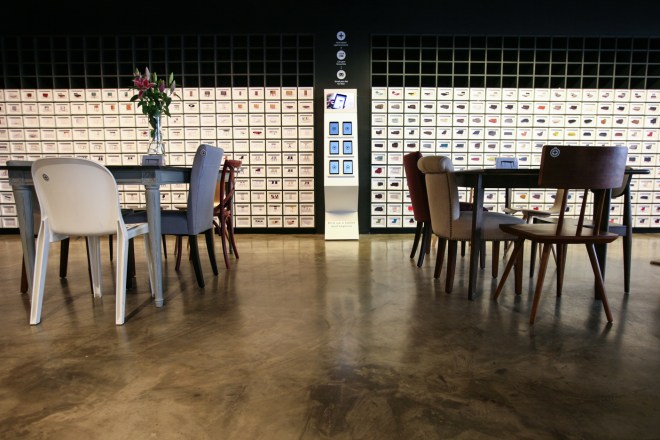3 Reasons Why Less is More in Modern Retail
In the past, retail has been known for its sheer size both in square footage and inventory, but with digital channels growing in influence and capability, are giant brick & mortar stores with hundreds of products really necessary? The technology available to us today says no.
As brick & mortar stores are evolving, retailers need to understand that they can (and should) aspire to become leaner in how to go about designing modern retail stores. By embracing a digital-first strategy, stores can be smaller, more efficient, and with less fixation on checkout alone; they can focus on being smarter and creating happier experiences for shoppers without sacrificing sales.
Here are just three reasons retailers should adopt the “less is more” ideology:
Reason #1: Less Inventory On-Hand Leads to More Digital Exploration
E-commerce has given retail an incredible new way to showcase their offerings and the evolution of technology has moved shoppers into an age where customers can look up entire inventories on their phone. Not only does digital allow for endless aisles and easy access to products, but it’s also the basis for digital exploration through recommendations.
London-based furniture retailer and CloudTags client MADE operates three Connected Showrooms that feature only a percentage of the brand’s most popular products. Tablets, sensors, and a CloudTags tap wall display the entire range, allowing customers to interact with the full MADE experience through a seamless blending of digital and physical channels.
Recently, MADE organized a pop-up shop in Brighton, UK with less than 5% of the total inventory in a typical MADE Connected Showroom. The pop-up generated great results, like 2x ROI and a 97% unique email identification rate, indicating that a smaller in-store inventory works well in digitally-enhanced settings—not to mention the increase in indentified customers and opportunities for In-Store Remarketing.
Reason #2: Less Friction in Customer Experience Leads To More Efficient Stores
When shoppers walk into a store, they are walking in usually with some increased level of intent of buying something. They’ve likely already done some research online and are looking for validation. What they want in-store is a simple way to see & touch the product(s) they’re interested in, and the less hurdles they need to jump through to get there, the more satisfied they become.
Using beacons to drive the experience helps guide shoppers to where they need to be and lets them know what may be relevant to them. Last year, BI Intelligence predicted that beacons would “directly influence over $4 billion worth of US retail sales at top retailers,” and that we’d see that number grow tenfold in 2016. In their report, they explained how much bigger sales influenced by beacon messages could be if retailers effectively harness the technology, noting that beacons are able to collect valuable customer data that “can help retailers target them with offers customized to their location in a store, or based on past in-store shopping behavior.” When intelligent data informs how beacons deliver messages, shoppers get a more personalized experience which helps them get what they want/need conveniently.
Access to deep product information in-store (via mobile device) also helps shoppers make decisions faster by giving them the most relevant info right when they need it. Studies show that more than 90% of shoppers are already using their mobile devices in-store to look up specs, competitive pricing, stock availability, and many will even purchase online during their in-store visit. Offering a branded digital experience that provides the most pertinent information quickly allows the retailer to create an uninterrupted path for shoppers requiring fewer steps between browse mode to buy mode.
Reason #3: Less Focus on Checkout Promotes More Omnichannel Buying Behaviors
Retailers are romantic about being able to checkout right then and there in the store (because it’s really the easiest way to prove store ROI). But, on average, omnichannel customers spend about 3x more than single-channel customers, so allowing them to move freely between channels before checking out almost guarantees that they will spend more with your brand. And with proper omnichannel attribution and customer identification methods, retailers can see each channel along the shopper’s journey. This is where it’s important to understand that stores and e-commerce sites aren’t in competition of each other, but are complementary.
Encouraging omnichannel behaviors also gives retailers a chance to develop more complete shopper profiles, which means more data to predict the lifetime value of a shopper and a clearer understanding of how they can better serve their customers. When retailers are focused less on pushing sales and more on creating fun, smart experiences for their customers, they start playing the long game of winning loyal customers, which is a sustainable and winning strategy.
With modern technologies and a highly evolved consumer, retailers have a chance to scale up sales while scaling down on aspects of traditional retail that are no longer relevant or required. By giving shoppers great digital-first store experiences, shoppers get to engage the way the prefer and retailers are able to build relationships that lead to higher revenue and customer loyalty.

